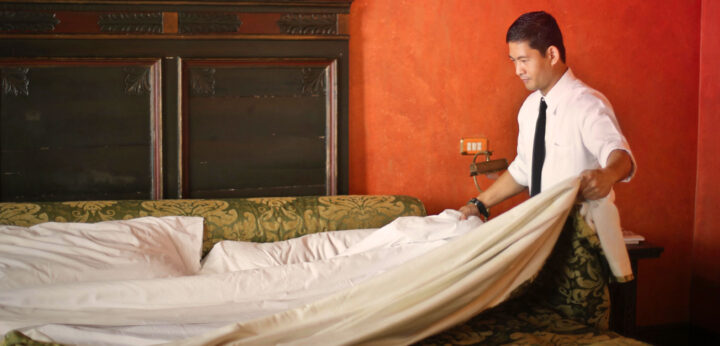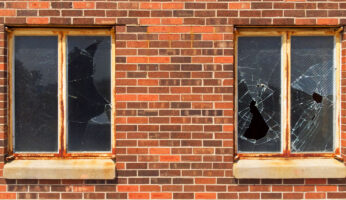Table of Contents
When does renters insurance cover a hotel stay?
Renters insurance will cover your hotel stay if you’re unable to continue living in your home due to a covered peril (a type of disaster that your insurer will compensate you for, per the terms of your policy).
For example, let’s say there’s a serious gas fire in your kitchen. Because fire is covered by renters insurance, your provider will reimburse you if you have to stay in a hotel while the damage is being repaired.
Your provider will also cover any other additional living expenses you incur, such as restaurant bills (since you won’t have access to your kitchen). This is called loss-of-use coverage, and it’s one of the main types of coverage offered by renters insurance.
Keep in mind that your provider will only cover costs above what you normally spend. If you normally spend $100 on food each week, and you spend $200 on food while out of your home, your insurance company will pay you $100 to cover the difference, but they won’t pay out the full $200.
Common additional living expenses
In addition to your hotel stay, renters insurance will also cover any additional money you spend on:
- Rent (for a temporary apartment)
- Restaurants
- Gas for your car (if you have a longer commute)
- Bus or cab fare
- Parking fees
- Laundry
- Pet boarding
- Storage costs
How long will my hotel stay be covered by renters insurance?
Some insurers will only cover your hotel stay for a limited period, like 12 to 24 months. It’s rare for a loss-of-use situation to last that long, so normally the main limitation is how much coverage you have.
In most renters insurance plans, loss-of-use coverage is capped at around $9,000, or approximately 25% to 30% of your personal property coverage. Once you reach your plan’s limit, your insurer won’t pay any more, even if you’re still incurring expenses.
It’s rare for additional living expenses to exceed $9,000, but you should be aware of your coverage limit when you pick a hotel and plan your budget.
Other limitations on loss-of-use coverage
When you make a loss-of-use claim, your insurer will probably ask you for a list of your typical weekly or monthly expenses. That’s because loss-of-use coverage is meant to let you maintain the quality of life you had before the incident that forced you out of your home.
Your insurer isn’t interested in paying for you to stay at a five-star resort or eat at the fanciest restaurants in town every night — assuming that you don’t live that way normally.
If you file a claim that seems unusually high, your provider might ask you for your bank statements from the past few months to verify what you normally spend. Performing a financial audit like that can be expensive, so they’ll only do that if your claim is truly excessive.
How to file a loss-of-use claim for a hotel stay
If a disaster forces you out of your home, notify your insurance company as soon as possible. Their website will let you know the best way to contact them — some insurers let you file claims online, while others require a phone call.
As mentioned, your insurer will ask you to fill out a form outlining how much you normally spend on rent, groceries, and transportation. You’ll also need to keep track of everything you spend while you’re out of the house, which means saving your receipts for your hotel stay and your other expenses.
Tell your insurer if you need them to pay for something upfront
Your insurer won’t pay for your hotel stay in advance; you’ll pay for everything first, and they’ll reimburse you at the end of every week or month. If you need them to cover something upfront (i.e. if it’s a large expense that you just don’t have the savings for), let them know right away.
When does renters insurance not cover a hotel stay?
Renters insurance won’t cover your hotel stay if you have to leave home because of a disaster that your policy doesn’t cover.
For example, let’s say a flood forces you out of your home. Because renters insurance doesn’t cover flooding, your provider won’t pay your hotel bill or any of your other living expenses.
Additionally, your provider will only pay if your home is truly uninhabitable. If a local miscreant throws a rock through your window, most of the time you’ll be able to keep living there while the damage is being repaired, so your provider won’t cover it if you decide to stay in a hotel.
Will renters insurance cover a hotel stay caused by mold?
Renters insurance sometimes covers hotel stays caused by mold infestations. Mold is covered by renters insurance when it was caused by a covered peril, like a burst pipe. If the mold damage is covered, your hotel stay will be, too.
Your provider won’t pay for your hotel stay if the mold was caused by a situation that you aren’t covered for, such as a flood or poor ventilation.
If renters insurance won’t cover me, will my landlord pay for my hotel?
In most states, if a landlord decides to make extensive renovations or repairs, they have to provide some sort of financial support to tenants who are forced to leave. For example, if they decide to replace the flooring in your unit while you’re living there, they’ll either have to pay for a hotel room or let you stay in a vacant unit that they own.
However, if you’re forced out by a situation that your landlord didn’t cause, such as a cooking fire, they don’t have any obligation to help you. If you don’t have insurance, you’ll have to pay for a hotel yourself. (A desire to avoid situations like this is a big part of why many landlords require renters insurance.)
Each state has different laws about tenant rights during renovation and repairs, so check your local regulations, and consult with an attorney if necessary.
Related Questions
- What is guest medical coverage in renters insurance?
- What is a sub-limit in renters insurance?
- Does renters insurance cover home-based businesses?
- Does renters insurance cover gold or silver bullion?
- What does "dependent in the care of" mean in renters insurance?
- Does State Farm renters insurance cover hotel stays?






